For your information
Your contributions
The next call for contributions is June 2, 2025.
If you would like to share your input, please visit the dedicated page for more details.
Feedback form
We are seeking your valuable input on how to enhance our newsfeed platform. Your feedback is crucial to our efforts to improve this platform and ensure that it effectively serves the needs of our users.
We kindly request you to consider the following questions in the feedback form:
- What types of content would you like to see more frequently on the newsfeed?
- Are there any features or functionalities that you believe would significantly improve the user experience?
Thank you for your time!
UNECE Forest and Bioeconomy Section
*Please note that the mobile version is still in development, kindly access the Billboard via your laptop device
Current Highlights

The Joint Economic Commission for Europe (ECE) and Food and Agriculture Organization of the United Nations (FAO) Working Party on Forest Statistics, Economics and Management will hold its forty-sixth session from 14 to 15 May 2025.
The thematic session “Forest fires and climate change" about climate change's impacts on wildfires in forests and trees in urban spaces and a review of the Integrated Programme of Work 2026 – 2029 will be featured among other discussions.
Meeting documents, as well as presentations, are available here
Save the Date
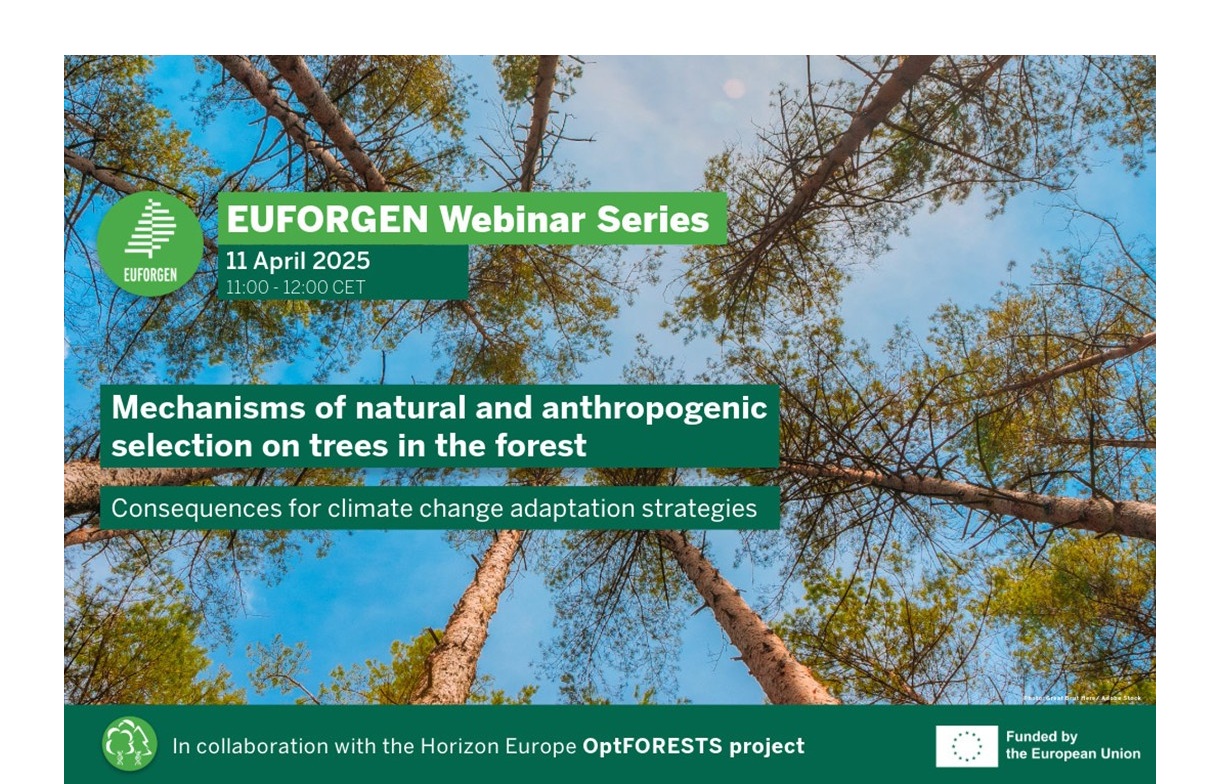
Join the first EUFORGEN webinar of 2025 on 11 April (11:00–12:00 CEST) to explore how natural and human-driven selection shapes tree populations and enhances climate resilience.
A geneticist and senior scientist at INRAE, France, will discuss how forest management practices such as thinning can strengthen resilience to drought and stress.
The presentation is organised in collaboration with the Horizon Europe OptFORESTS project. Don’t miss this opportunity to engage with leading research on forest genetic resources and climate adaptation!
For more information: here

Join the Food and Agriculture Organization of the United Nations throughout 2025 for a dynamic global webinar series focused on sustainable forest-based bioeconomy approaches. From data, policies and supply chains to financing and partnerships – discover key themes and understand how to unlock the forest sector’s transformative potential for decreasing reliance on non-renewable resources in a sustainable bioeconomy and transition to climate-positive societies. Attendees will contribute to identifying globally relevant shared goals, critical challenges and priorities that can inform evidence-based policy and investment decisions to support the development of the sustainable forest-based bioeconomy approaches.
For more information: here
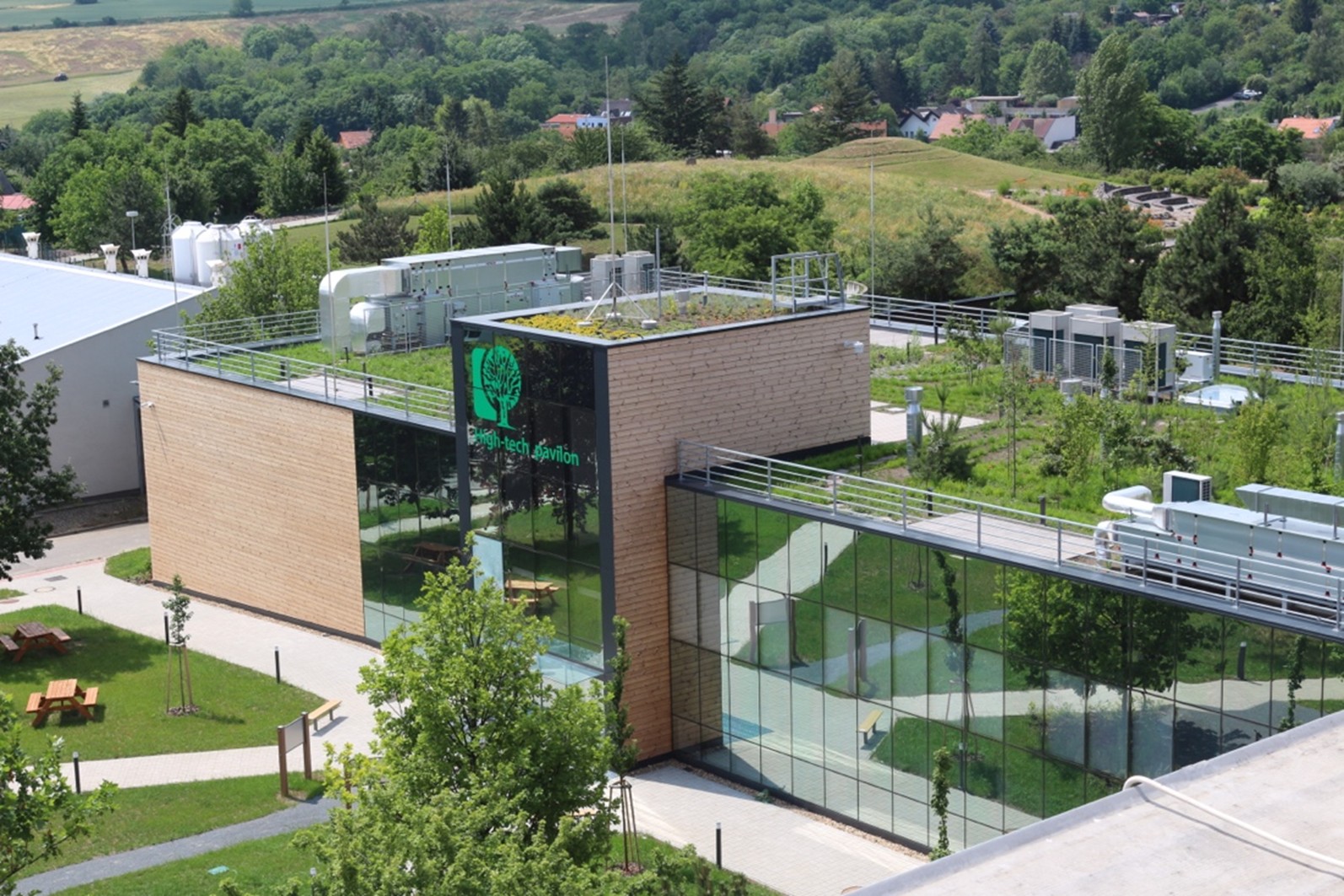
The International IUFRO Conference in Prague will provide a platform for discussing the socioeconomic changes and challenges in the forest sector, with a particular focus on economic decision-making and financial planning. The discussions will highlight the role of analytical approaches, policy coordination, and performance evaluation in strengthening the resilience of forestry businesses and institutions. Through interdisciplinary dialogue and knowledge exchange, the conference aims to contribute to the development of effective strategies that strengthen the economic viability and sustainability of the forest sector in an increasingly complex global landscape.
For more information: here
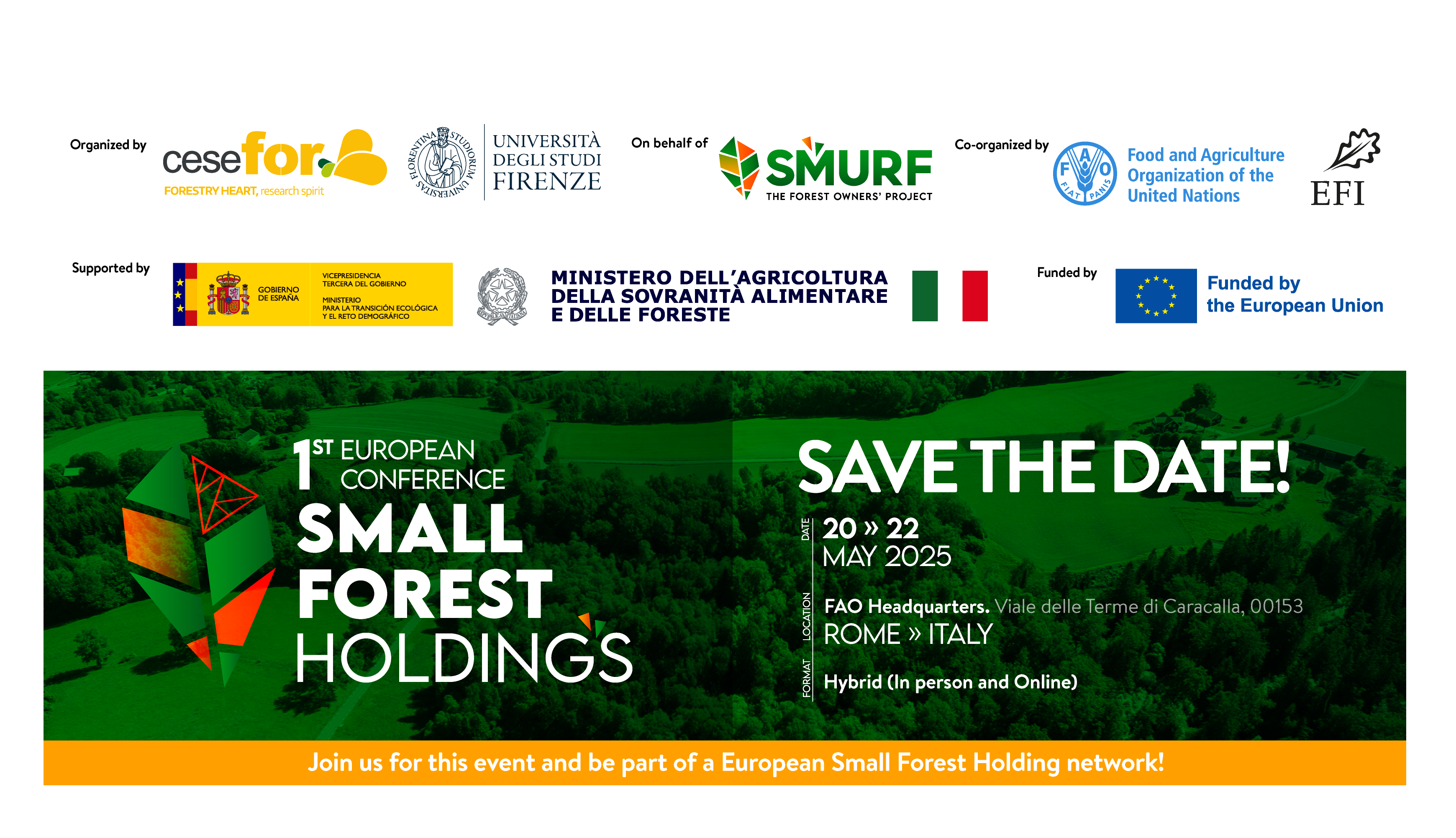
The First European Conference on Small Forest Holdings (Rome, 20-22 May 2025), aims to bring together the opportunities and challenges surrounding small forest ownership, including private, public and collective. We will explore the needs, risks, and opportunities of Small-Scale Forestry within the EU, while promoting Sustainable Forest Management and supporting local value chains based on forest products and ecosystem service from European small forest properties. This event is an opportunity to engage with private, public and collective forest owners and managers, forest owners’ associations, forest authorities, forest enterprises, professionals, researchers and NGOs and all the stakeholders dealing with Small Forest Holdings in Europe. For more information: here
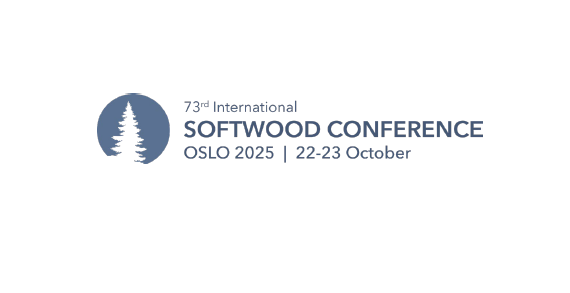
The Norwegian Wood Industry Federation, in collaboration with the European Timber Trade Federation and the European Organisation of the Sawmill Industry, will hold the International Softwood Conference 2025 (22-24 October 2025, Oslo, Norway).
It will provide the latest updates on international markets, and discuss the competitiveness of wood, the availability of raw materials, and market opportunities in the most relevant countries worldwide.
For more information: here

WOOD-SCIENCE-ECONOMY (WSE) is an international scientific conference organized by the Łukasiewicz Research Network – Poznań Institute of Technology in collaboration with various institutions.
The 5th edition of WSE will take place from 3 to 5 December 2025 in Poznań. This year’s conference strongly focuses on digitization, sustainability, multidisciplinarity and connects researchers and entrepreneurs from the forestry and wood industry, with special emphasis on studies with high implementation potential.
UNECE Forest Section

The Yashil Makon Initiative is a nationwide program launched by the Government of Uzbekistan to expand and enhance green spaces, promote environmental stewardship, and improve the overall quality of life for citizens. The Initiative was supported through a collaborative project that focused on integrating comprehensive master planning and modern information technology tools with innovative financial solutions, creating income-generating opportunities for the local communities. The final workshop, held on 24 March 2025 in Tashkent, Uzbekistan, concluded the project and shared its results. It also consolidated inputs from national and international experts and discussed implementation mechanisms, including technical guidance, financial models, and community-based approaches. For more information: here and here
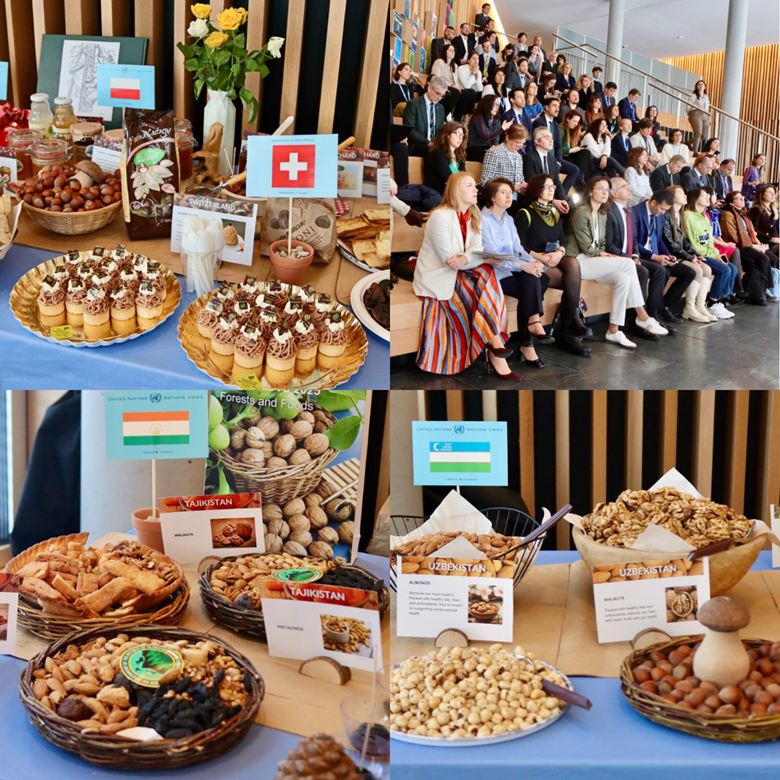
On 20 March 2025, UNECE and the Permanent Mission of Türkiye to the United Nations Office at Geneva, along with participating countries, marked the International Day of Forests (IDF) by highlighting the vital connection between forests and food security. The event showcased a diverse selection of forest foods from Armenia, Moldova, Poland, Switzerland, Tajikistan, Türkiye, and Uzbekistan, including nuts, dried fruits, honey, infusions, and wild berries. Presentations emphasized how protecting forests and promoting sustainable practices can help secure nutritious food for future generations while strengthening resilience to climate change.
The discussion is further developed in the UNECE guide “The Edible City: Why Food Trees Matter.” This guide offers a comprehensive approach to integrating edible fruit-bearing trees into urban landscapes as a strategic solution to enhance food resilience. It addresses the challenges and opportunities associated with incorporating food trees into urban planning and policies, including successful case studies, practical guidance, and policy recommendations. The report aims to facilitate the development of policies and regulatory frameworks that establish sustainable, resilient, and food-secure cities for all.
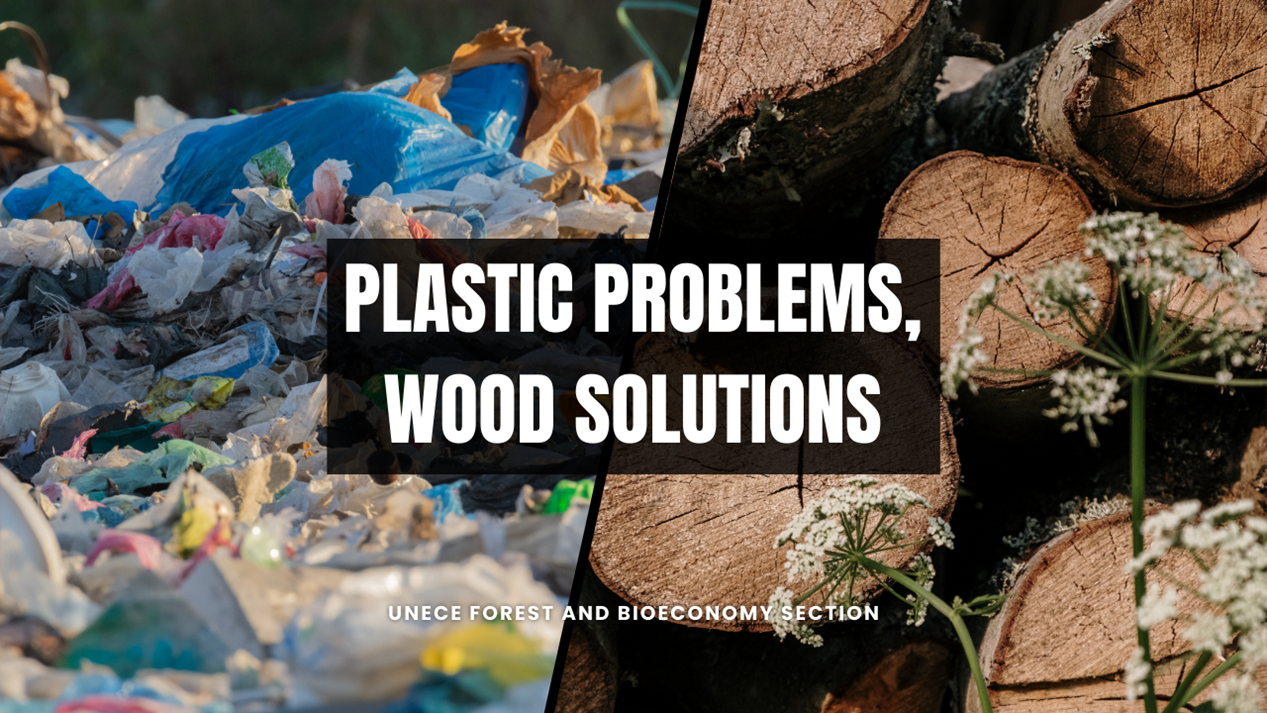
Plastic waste is suffocating our planet, but forests offer a powerful solution. Wood and its derived products are renewable, biodegradable, recyclable alternatives that can replace harmful plastics in products such as packaging, textiles, and single-use items.
By embracing wood-based alternatives and responsible forestry practices, we can protect ecosystems, reduce pollution, and take meaningful steps toward mitigating climate change.
Watch our latest video and discover how forest-based solutions can help us build a world free from plastic: here

As part of the Trees in Dry Cities Coalition, UNECE hosted two key webinars on 13 and 18 March 2025, bringing together financial institutions, experts, and stakeholders.
The first event explored innovative financing mechanisms, with insights from EIB, EBRD, IsDB, and the World Bank on securing long-term investment for urban greenery, such as regulatory tools, blended finance, and carbon credits. To advance solutions, the Coalition will develop a Compendium of funding concepts to help cities secure investment. The second meeting featured upcoming Technical Guidance on integrating urban forestry into national policies and global frameworks.

A sustainable and circular bioeconomy offers opportunities to enhance climate change adaptation and resilience. This can be done through ecosystem restoration, improved soil and water retention, and support for indigenous and local livelihoods. However, the transition involves both benefits and challenges, requiring careful policy actions, partnerships, and innovations to mitigate trade-offs. The ECE/FAO study “Sustainable and circular economy in forest-based industries. How to get there” highlights the rising demand for renewable forest resources, the shift away from fossil fuels, and efforts to reduce pollution, waste, and single-use plastics. Forest-based materials are central to this transition.
For more information: here
Publications, Reports...

A recent study, “Sustainability language found in forest plans and its mathematical modeling potential”, has been published as an open-access article in Discover Sustainability.
This study presents interesting findings on the mathematical modeling potential of sustainability statements within U.S. National Forest plans, based on an online survey distributed among members of the Society of American Foresters (SAF).
For more information: here
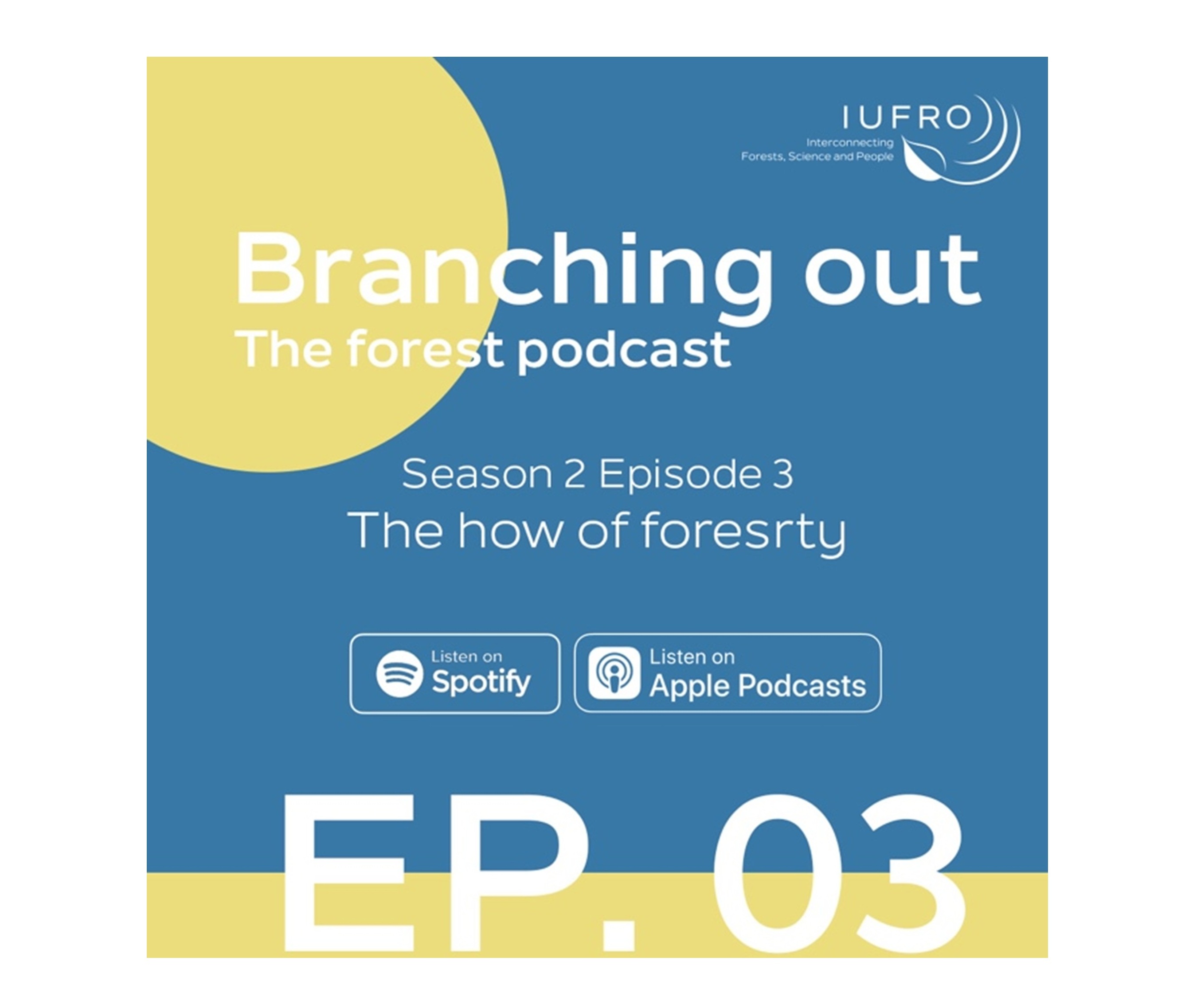
Forestry is not just about felling trees but about how we protect, sustainably manage, and restore forests. In the most recent episode of Branching Out: The Forest Podcast, the hosts talk to a Co-Coordinator of the International Union of Forest Research Organizations' (IUFRO) Division 3 - Forest Operations, Engineering, and Management. The guest explains that this Division focuses on how forestry activities are carried out — from seed collection and forest restoration to logging and re-management. He emphasizes that forest operations go far beyond timber harvesting, playing a key role in biodiversity conservation and forest landscape restoration. He also highlights that meeting global restoration targets requires careful planning.
For more information: here

Are we looking for wildfire solutions in the right places? Shift your perspective on wildfires by listening to EFI researcher presenting her research work including the focus on cutting-edge AI models, sophisticated drones, and high-tech sensors.
Viewing wildfires as a territorial issue shifts the focus away from emergency response and expands it to include the complex ecological, social, and economic dynamics of the territories where wildfires occur. By placing societal needs rather than wildfire suppression at the centre, new pathways for social innovation and enhanced resilience can emerge.
For more information: here
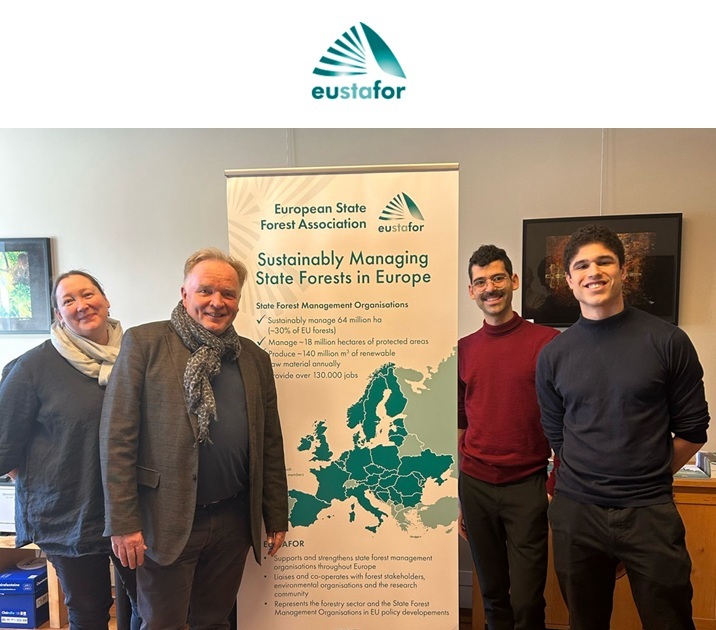
The European State Forest Association launched a podcast series with the inaugural episode, "Forest and Food," highlighting the critical connection between forests and food systems - an often-overlooked relationship. In this episode, the invited expert shares valuable insights into the role of forests in food security, sustainable agriculture, and ecosystem health. The discussion explores how European state forests are responsibly managed to balance economic, environmental, and social values, ensuring benefits for all Europeans. Listeners will gain a deeper understanding of sustainable forest management practices and essential services that forests provide to communities and the planet.
For more information: here
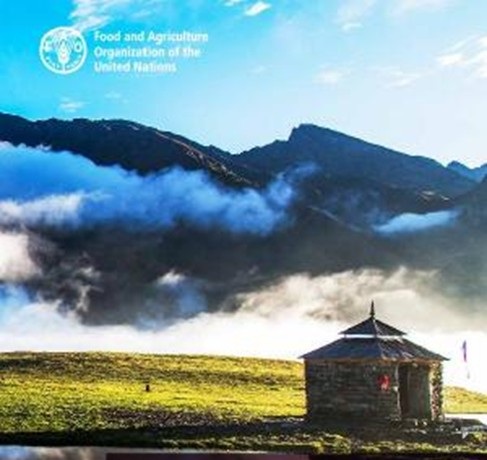
The publication "Promoting innovation and tradition: solutions for climate change adaptation in mountains" underscores the challenges posed by climate change to mountain ecosystems and communities while showcasing successful adaptation strategies from around the world.
For more information: here
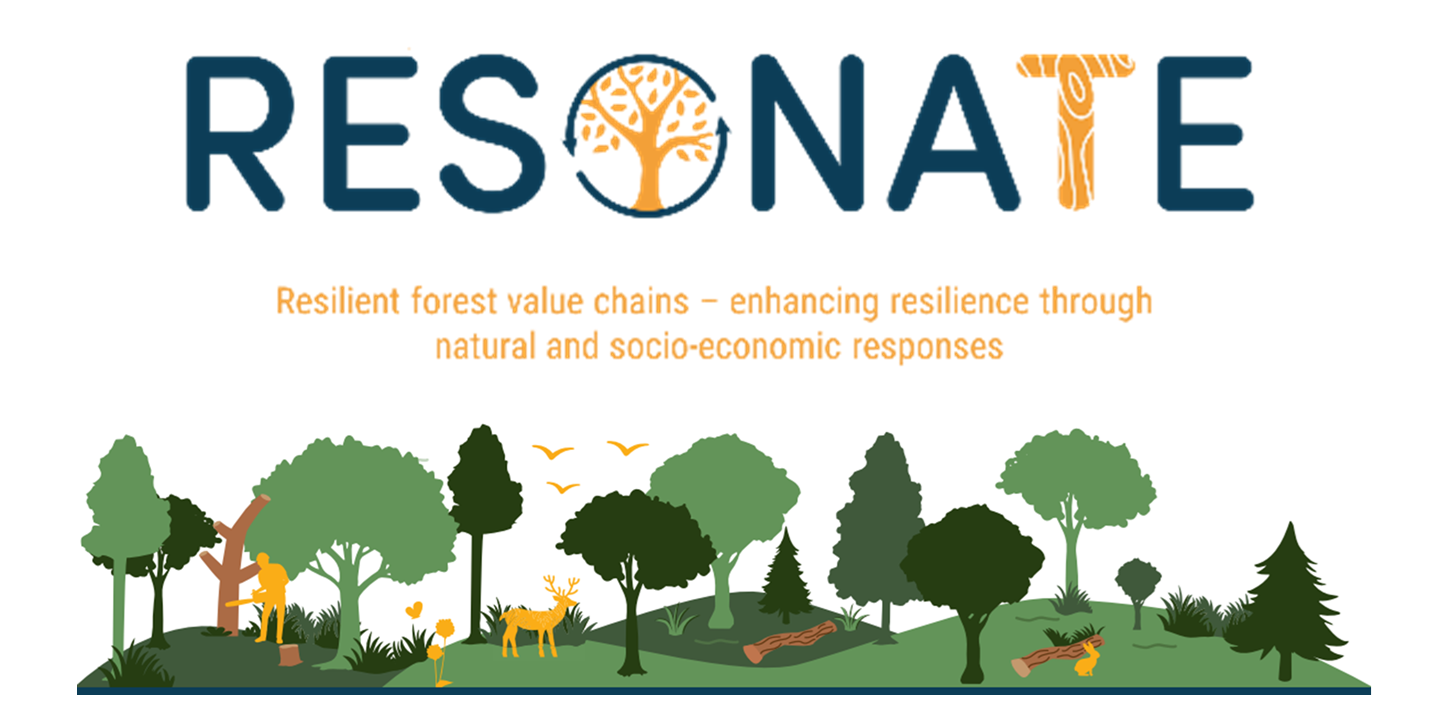
After 4 years, the H2020 RESONATE project concluded in March 2025. To support practitioners and policymakers, we have published three policy briefs:
🌱 The Role of Biodiversity in Making Forests Resilient - how adaptive management can balance biodiversity and wood production.
🌳 Managing Forest Disturbances in a Changing Climate - strategies to cope with increasing disturbances.
🌿 Enhancing Climate Resilience of Forest Value Chains - how transitioning to climate-resilient forests will impact the wood industry.
For more information: "RESONATE - Resources -> policy briefs"

This study considers mechanical properties of primary blue-stained sapwood of Norway spruce infested by the bark beetle Ips typographus. Differences in the mechanical properties were analyzed according to the stand and storage time of the stems after the bark beetle attack. Spruce harvested 2–3 months after the bark beetle attack showed a clear reduction in impact bending strength, a significant loss in surface elastic recovery after indentation during the Brinell hardness test, and a striking number of specimens with brittle fracture behavior during Three-Point-Bending. Especially after larger outbreaks of bark beetles, it must be assumed that sapwood of Norway spruce does not only show the typical blue stain but also incipient stages of wood degradation by wood-degrading fungi.
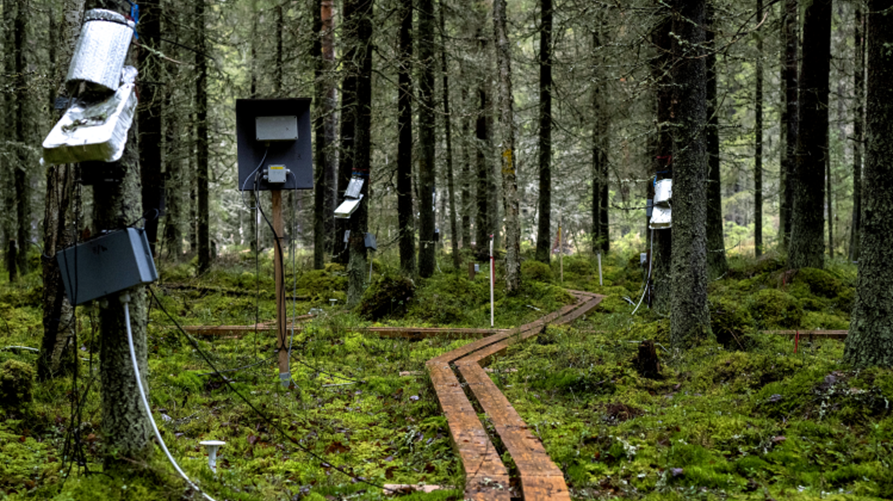
A recent policy brief developed in the framework of the Horizon 2020 HoliSoils project addresses critical forest soil challenges in Europe. The brief emphasises the need for enhanced soil carbon sequestration, sustainable forest management, and improved soil monitoring to meet EU climate targets. Key recommendations for increasing soil carbon stock include reducing harvests, increasing stocking density, as well as sustainable post-fire management practices. Moreover, readily available methods for assessing soil biodiversity, functional redundancy, and community resilience represent crucial tools to facilitate the implementation of the proposed Soil Monitoring Law.
For more information: here
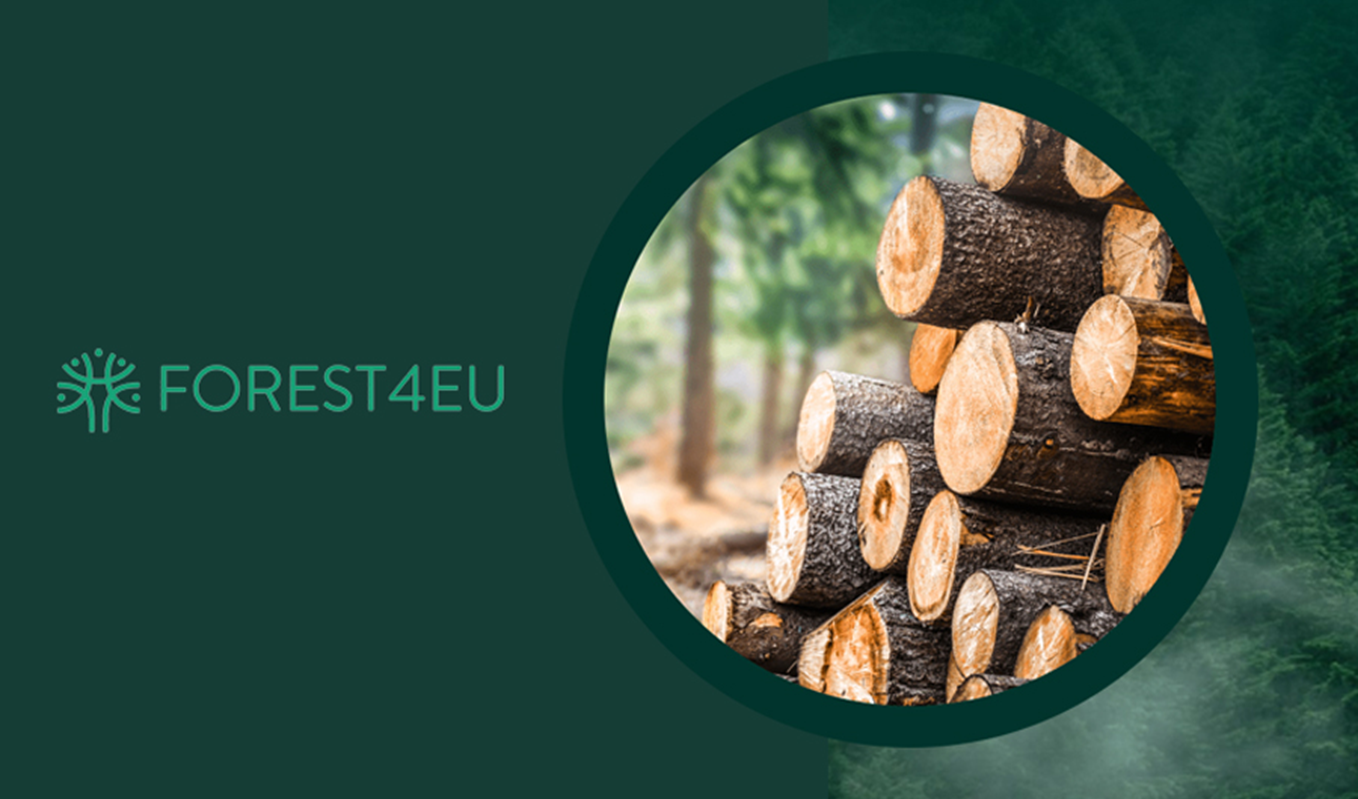
The Horizon Europe FOREST4EU project invites you to dive into a wide range of innovations produced by Operational Groups across Europe in the forestry and agroforestry sectors. These small projects, developed by farmers, forest managers, and local communities, aim to foster innovation and good practices in forests and agroforestry systems. To overcome the challenge of disseminating their results beyond national borders, FOREST4EU has made these innovations available in multiple languages. Explore videos, articles, technical reports, and factsheets on wood mobilisation, forest adaptation to climate change, sustainable forest management and ecosystem services, non-wood forest products, and agroforestry systems.
For more information: here
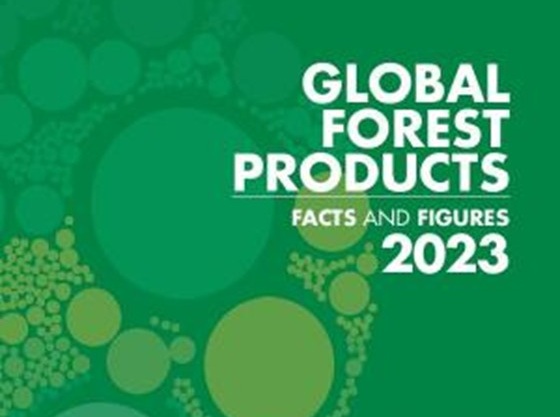
“Global forest products facts and figures 2023” is a synthesis of major trends in production, trade, and consumption of forest products, 2019-2023, based on the FAOSTAT-Forestry database.
The report includes a short summary of recent improvements in the Food and Agriculture Organization of the United Nations’ work on forest product statistics. These data are essential for monitoring change and innovation in the global wood industry. Global trade in wood and paper products dropped steeply from record levels in 2021 and 2022, with the paper trade continuing to decline under pressure from digital media.
For more information: here
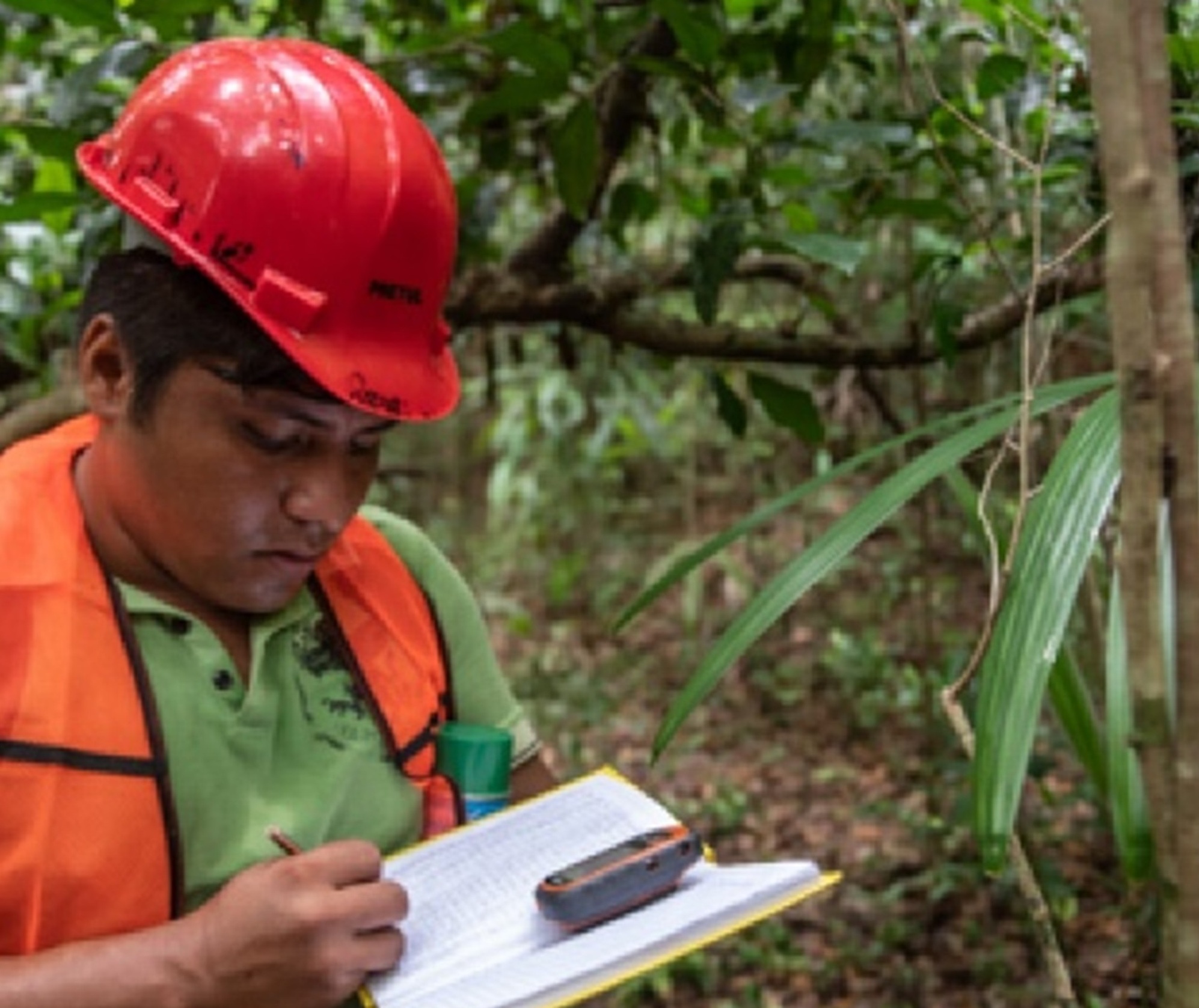
Amid shifting EU priorities, FSC believes sustainability and competitiveness goals must go hand in hand.
FSC developed a tool called “FSC Aligned for EUDR” to help companies advance deforestation-free objectives while facilitating and simplifying compliance.
In our latest article on this topic, we have selected the key EUDR updates that can be useful for its implementation.
For more information: here
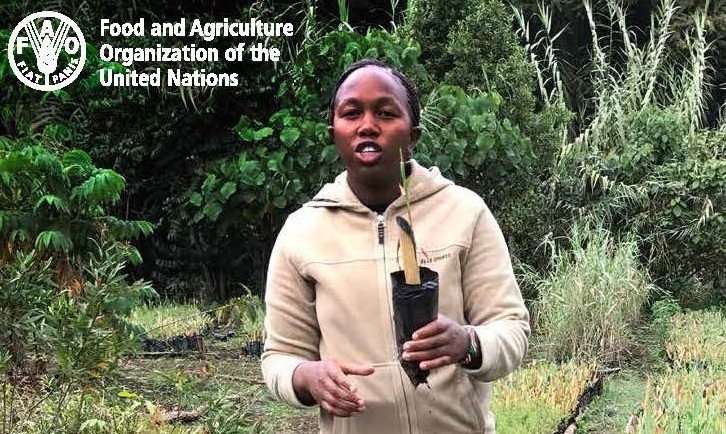
Global megatrends are renewing traditional forest-sector employment and can provide new job opportunities, according to a new report released by the Food and Agriculture Organization of the United Nations.
The report examines the impacts of megatrends on employment in the forest sector and evaluates current decent work challenges and opportunities.
For more information: here
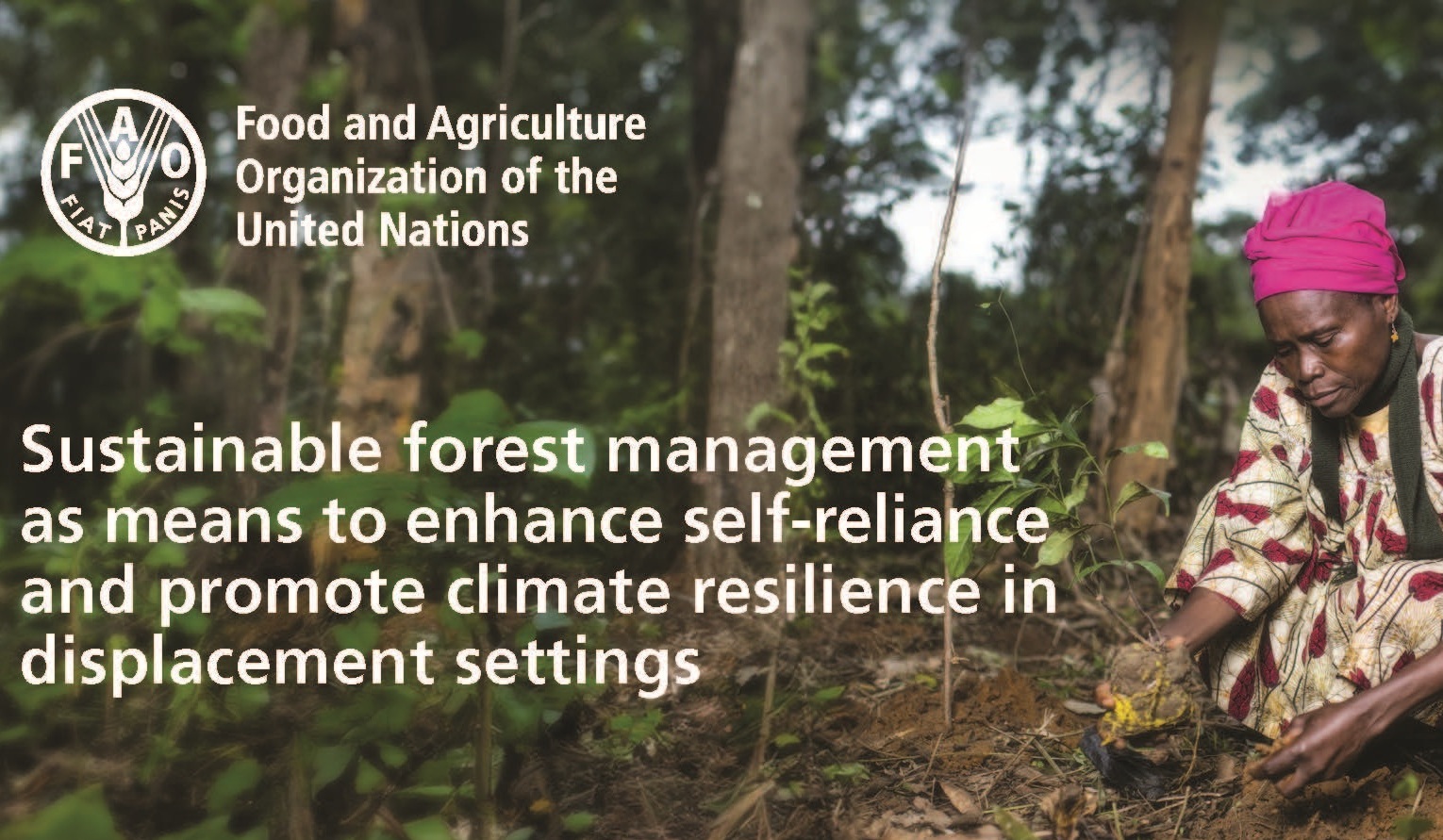
Communities must play a central role in managing forests sustainably in areas hosting large numbers of displaced people as part of a greener response to humanitarian crises, according to new guidance from the Food and Agriculture Organization of the United Nations and the UN Refugee Agency.
The brief highlights the importance of integrating environmental considerations into humanitarian action as conflict, climate change and economic turbulence increasingly force people to flee their homes.
For more information: here

A new position paper from EUSTAFOR addresses the implications of recent EU climate and nature legislation on state-owned forests and emphasizes the need for a balanced approach to land protection.
The position paper advocates for active and responsible forest management that balances conservation, protection, and production goals.
It warns that non-management can lead to the loss of valuable habitats and increase risks such as wildfires, particularly in the Mediterranean region.
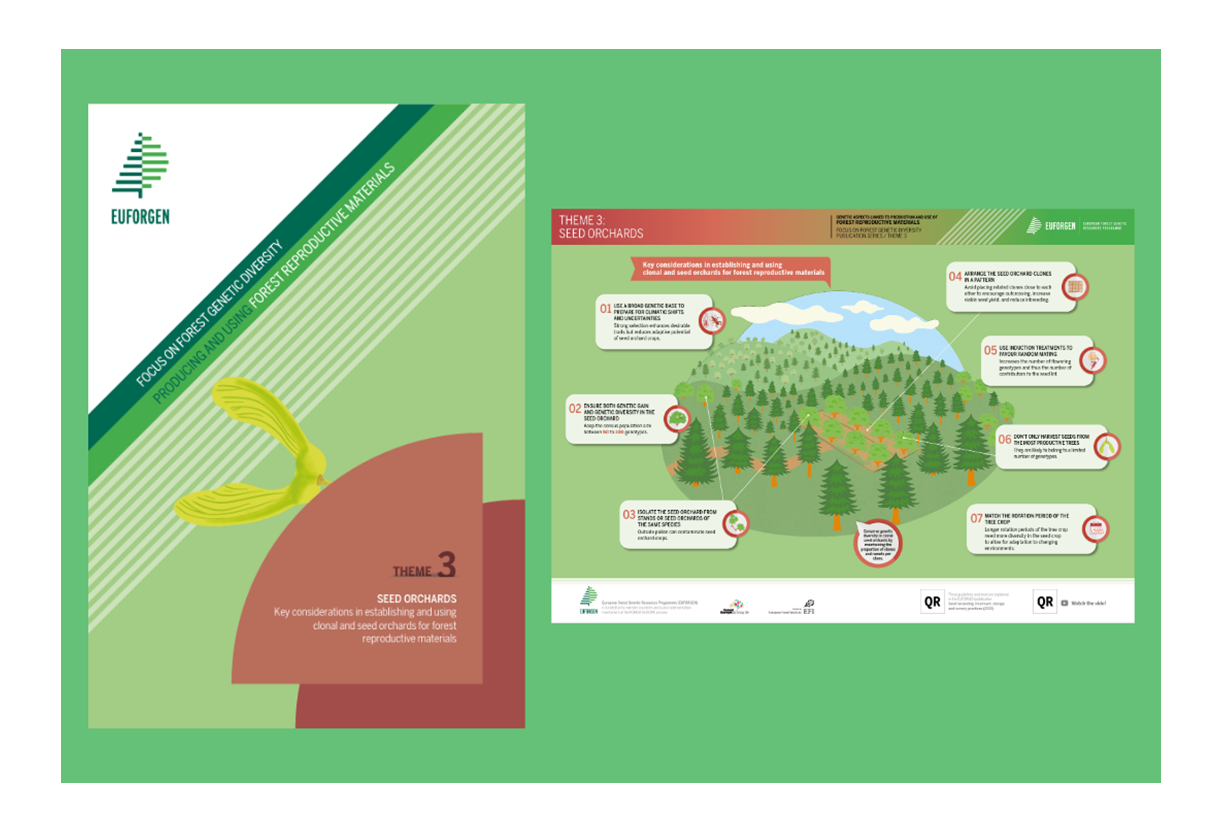
EUFORGEN’s publication series “Focus on Forest Genetic Diversity” offers practical guidelines for forest owners, managers, and nursery practitioners. The new Theme 3 highlights key considerations for establishing and managing seed orchards to produce high-quality forest reproductive materials. The guidelines cover key considerations for both clonal and seed orchards, including site selection, genetic diversity, and management practices. Developed from EUFORGEN research, the recommendations aim to enhance forest breeding, conservation, and resilience by ensuring the production of superior genetic material for forest regeneration and long-term environmental stability.
For more information: here
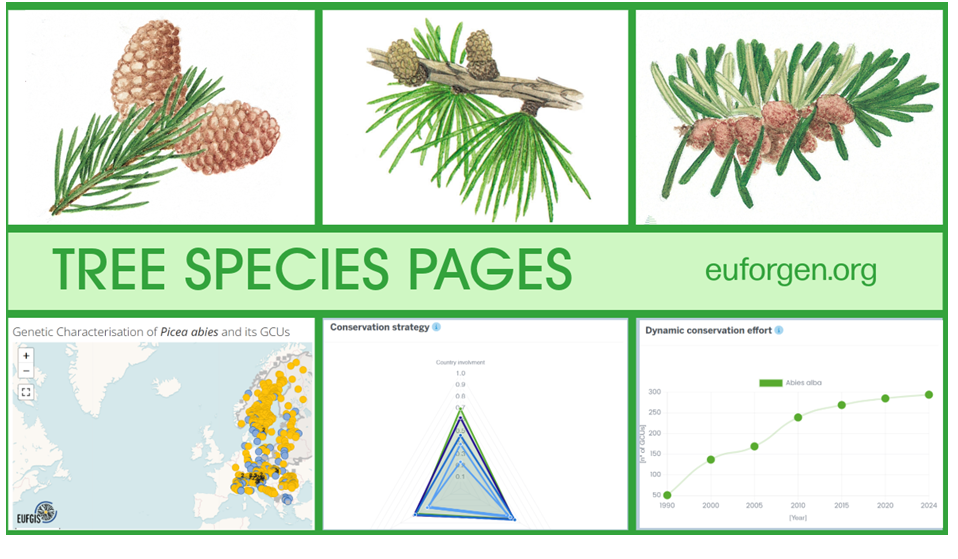
Explore detailed information on over 100 European tree species with EUFORGEN’s comprehensive species profiles. Discover insights into distribution, ecology, genetic diversity, and conservation status. Each profile features expert-reviewed data on species’ biological traits, environmental preferences, and genetic structure, alongside interactive maps and downloadable resources. Learn about the ecological and economic importance of a wide range of tree species and understand the impact of threats such as deforestation and climate change. Gain valuable knowledge on management strategies, including in situ and ex situ conservation, to support sustainable forest management and biodiversity conservation.
For more information: here
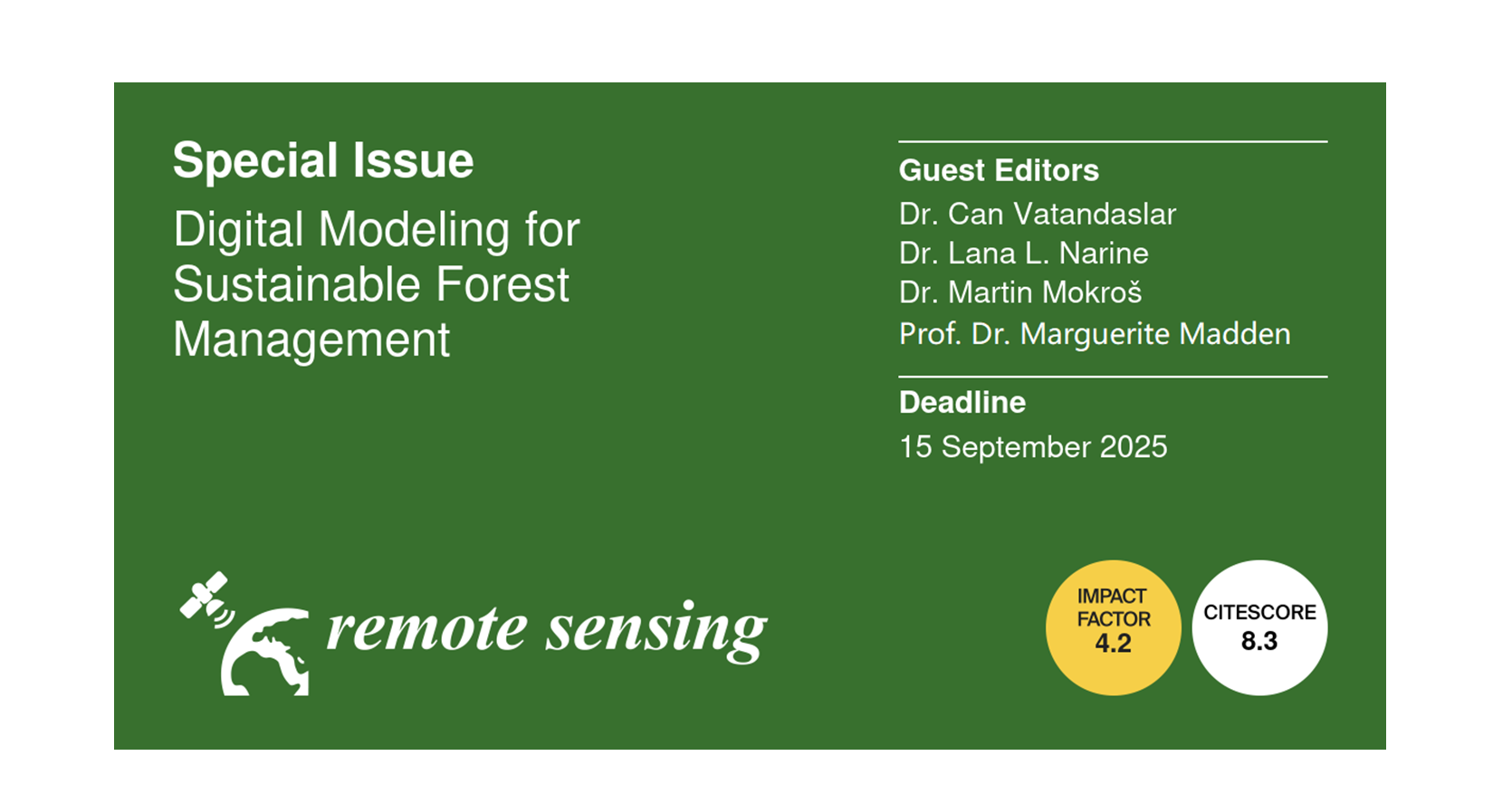
This Special Issue aims to explore the latest developments and applications of digital modeling in forestry, leveraging cutting-edge remote sensing tools and geospatial technologies to promote the sustainable management of forests.
Since improved forest management often supports the sustainable provision of ecosystem goods and services, research focusing on characterizing and mapping forest ecosystem services is also encouraged.
The deadline for submission is 15 September 2025.
For more information: here
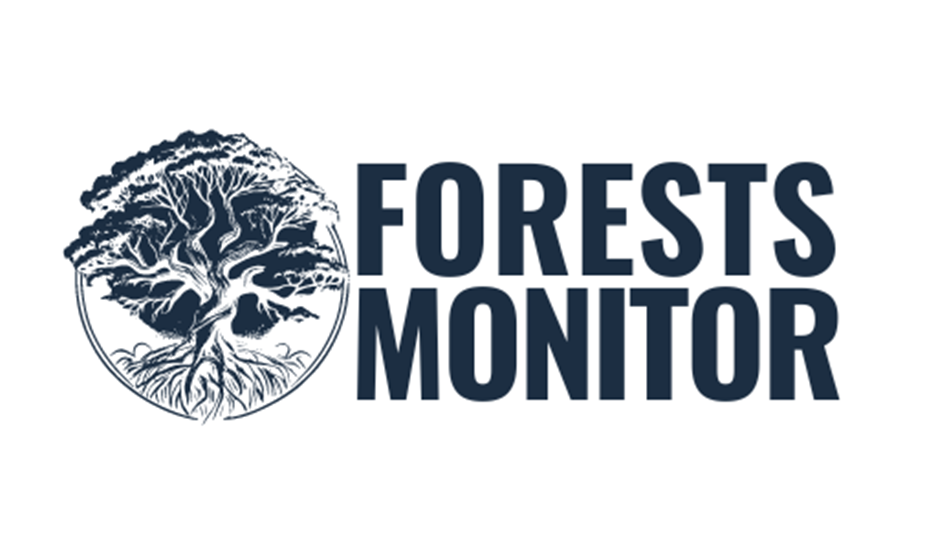
Forests Monitor announces a forthcoming Special Issue (SI) dedicated to advancing the frontiers of forest policy science. The primary goal of this SI is to deepen the understanding of the multifaceted nature of political forests, and political forestry, examining different issues of forest governance, and generating insights on the future of forests in Europe, including but not limited to:
- Forest governance in the EU as a whole and in nation states.
- Knowledge, data, and evidence in a political forest.
- (Forest) land use, forest owners, and land conflicts.
- Inequality, intersectionality & gender in forest policy and practice.
The deadline for manuscript submissions is April 15, 2025.
For more information: here
Forest community
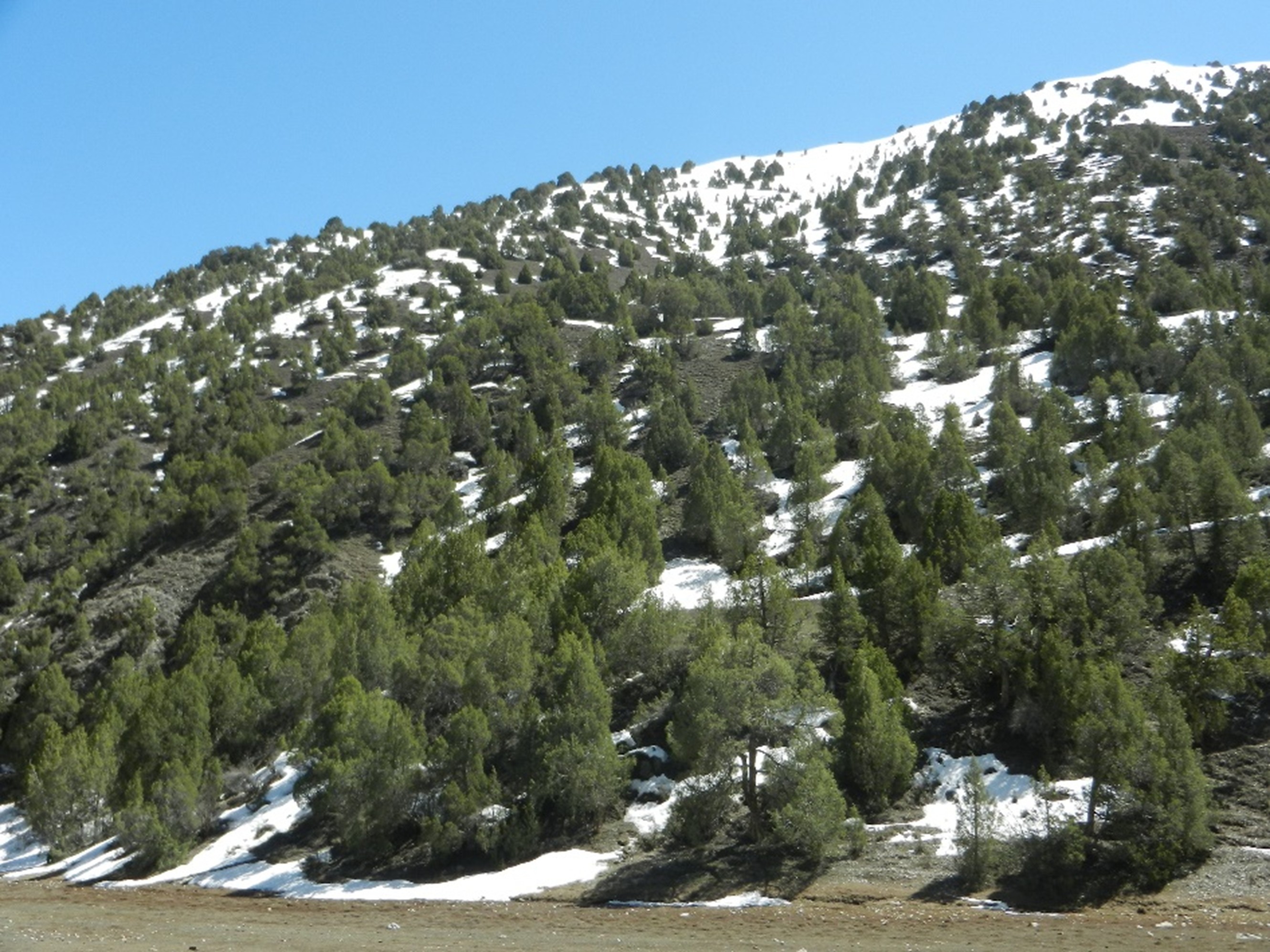
In November 2024, a workshop was held to launch an FAO Technical Cooperation Programme (TCP) project supporting Tajikistan in accessing climate finance for afforestation, sustainable forest management, and greenhouse gas (GHG) mitigation. The project aims to enhance the capacity of national partners in climate-sensitive sectors, including forestry, agriculture, water, and energy. It will facilitate the mobilization of external resources, particularly from the Green Climate Fund, and promote investment and knowledge exchange to ensure long-term sustainability. By fostering collaboration, the project aims to help Tajikistan adapt to climate change and improve livelihoods, especially in rural areas.
For more information: here
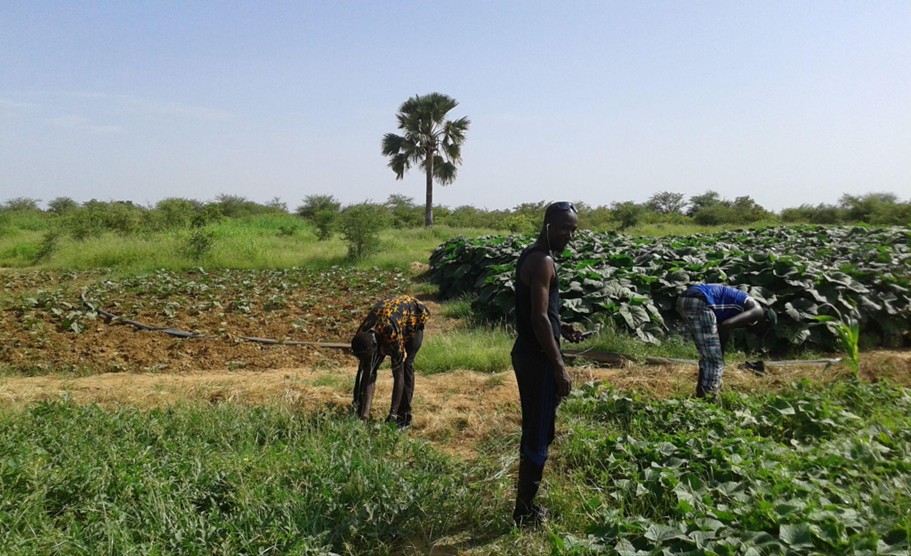
Mauritania’s Guidimakha region, rich in biodiversity yet facing severe environmental degradation, is home to the country's last forest reserve. However, unregulated transhumance, desertification, and recurrent wildfires threaten agropastoral livelihoods, fueling conflicts and economic instability. As a response, a large-scale Nature-based Solutions center built on an agroecological farm concept was established. The Center integrates reforestation, agroforestry, sustainable water management, and climate-resilient agriculture to restore degraded ecosystems, enhance food security, and create green jobs—particularly for women and youth. By incorporating Ecosystem-based Disaster Risk Reduction and Digital Climate Advisory Services, this initiative provides a scalable model for sustainable development across the Sahel.
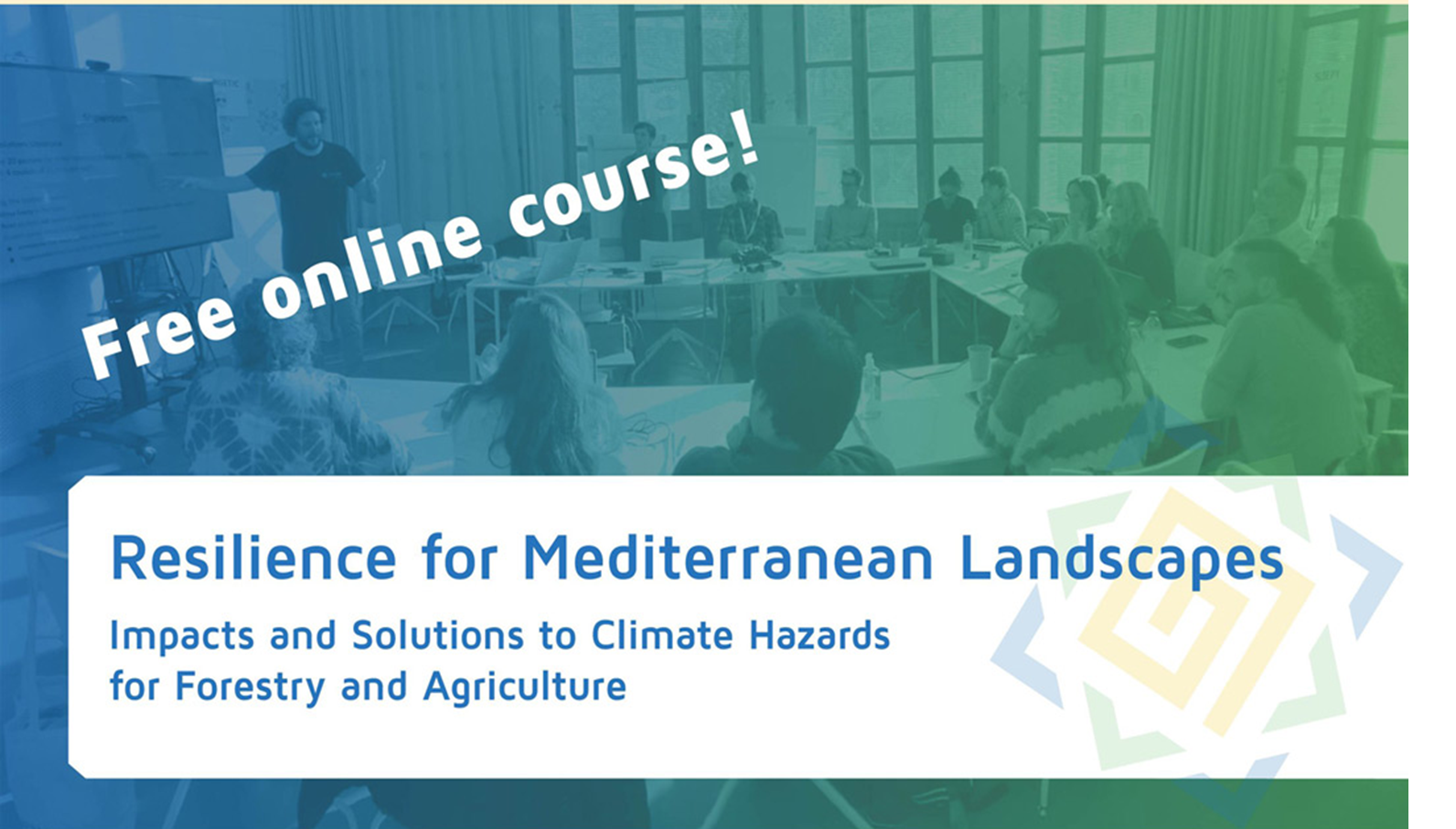
The EU-funded ResAlliance project just launched a free Massive Open Online Course (MOOC) that provides up-to-date knowledge on how climate risks (such as forest fires, droughts, desertification, floods, and pests) affect agriculture and forestry, focusing on innovative solutions for climate resilience.
The course centers on four key areas - technology, finance, management, and governance- learning from experts and real-world case studies from Spain, Italy, Portugal, Greece, Tunisia, and Cyprus.
For more information: here

The pursuit of Ukraine's economic development remains a priority for its people and businesses, even as the war continues.
This commitment encompasses the forestry sector, with ongoing efforts to enhance its ecological and social sustainability.
FSC Ukraine is working to develop new standards and establish progressive forestry practices in Ukraine, despite the challenging conditions.
For more information: here
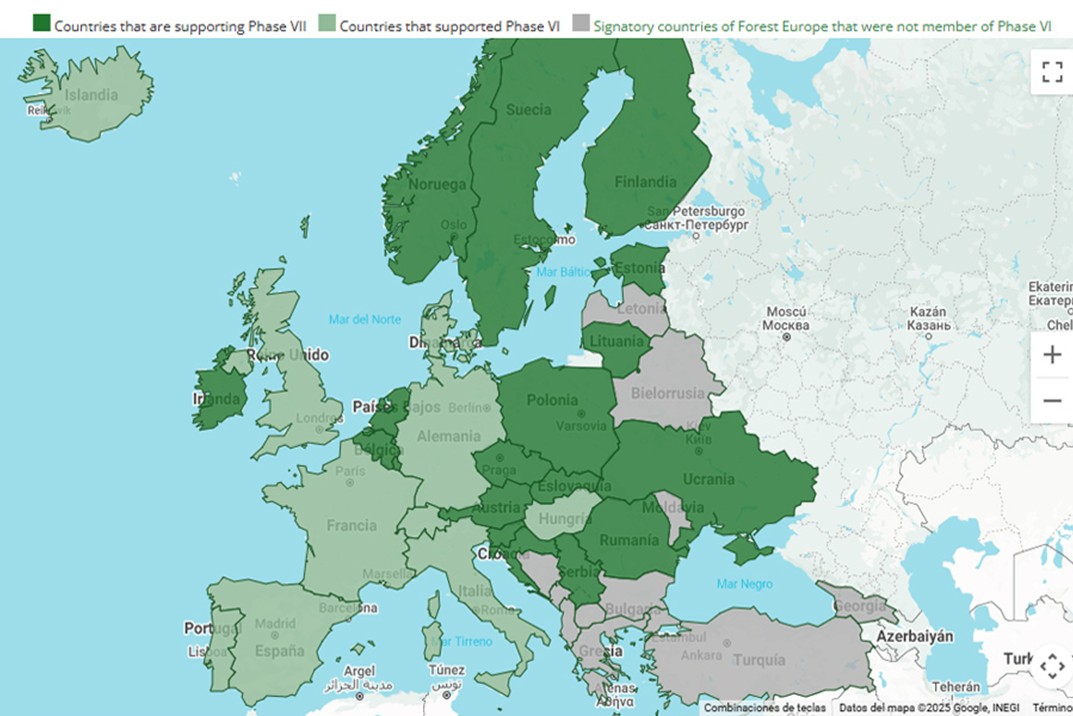
EUFORGEN began Phase VII (2025–2029) in January 2025, continuing in its mission to conserve and sustainably manage forest genetic resources across Europe under its mandate from Forest Europe.
Building on 30 years of collaboration, this phase focuses on three strategic objectives: facilitating knowledge sharing, coordinating conservation efforts, and promoting sustainable use. Key activities include protecting genetic conservation units, enhancing genetic monitoring, addressing conservation gaps, and advancing European Information System on Forest Genetic Resources to improve data management and foster collaboration among stakeholders.
For more information: here

The newly launched project “Improving Biodiversity and Sustainable Forestry” under the FAO–Türkiye Forestry Partnership Programmes aims to enhance biodiversity conservation and sustainable forest management in Azerbaijan, Kazakhstan, Kyrgyzstan, Montenegro, Tajikistan, Turkmenistan, and Uzbekistan. Through regional cooperation, capacity development, and pilot initiatives, the project will equip national administrations with state-of-the-art management planning systems for forests and protected areas. By mainstreaming biodiversity conservation with sustainable forestry practices, the initiative will contribute to ecosystem resilience, carbon storage, and water regulation, ensuring long-term environmental benefits. For more information: here

On 20 February an agreement for the project "Enhancing the resilience of Serbian forests to ensure energy security of the most vulnerable while contributing to their livelihoods and carbon sequestration (FOREST Invest)" was signed between the FAO, in its capacity as an Accredited Entity of the Green Climate Fund, the Government of the Republic of Serbia, represented by the Ministry of Agriculture, Forestry and Water Management, as well as two public enterprises for forest management “Srbijašume” and “Vojvodinašume”. Over the course of seven years, FOREST Invest will enhance the resilience of forest ecosystems, improve energy security for vulnerable communities, and contribute to reducing greenhouse gas emissions. For more information: here

Along the vast farmlands of Italy’s Po River Valley, three forests stand as living proof of a changing landscape. Surrounded by agriculture and industry, these pockets of woodland stand out and catch our eye. Today, their value is highly recognized by the nearby communities that protect and manage them and whose lives are deeply intertwined with the thriving forest ecosystems.
A new story told through a storymap and films reveals how recognizing the true value of nature helps safeguard these forests and their biodiversity, proving that environmental conservation can go hand in hand with economic sustainability.
For more information: here
Past Events

On 15 February 2025, the Municipality of Athienou hosted a major tree-planting event with hundreds of trees planted in the Athienou area. Attendees were divided into two groups, planting trees in the Avdellero area and along the Athienou-Larnaca road.
The Mayor of Athienou thanked everyone for the massive turnout and assistance in planting the trees, which were provided free of charge by the Forestry Department of Cyprus. The Municipality continues its efforts to plant as many trees as possible to create a greener environment in the area.
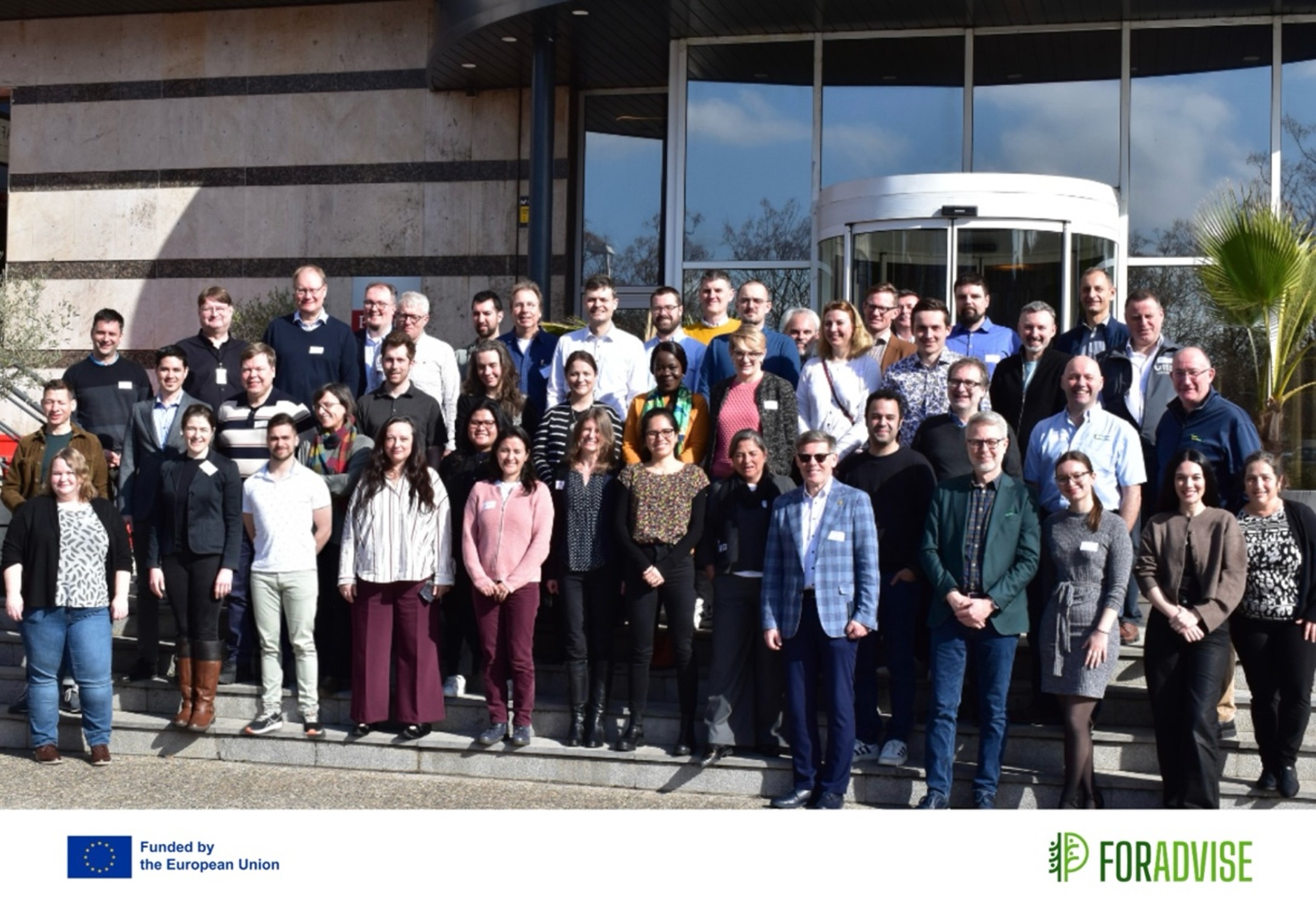
On 4–6 March, the FORADVISE project, a Horizon Europe initiative to strengthen forestry advisory services, held its kickoff meeting in Girona, Spain. The event convened 32 partners from across Europe to enhance the European forestry advisory network.
The European Forest Institute (EFI), as project coordinator, brought together representatives from forestry organizations, universities, research institutions, and advisory bodies to define project priorities and ensure that the project effectively supports forestry advisors in implementing sustainable forest management practices.
For more information: here

The inaugural FAO webinar in a global webinar series “Sustainable forest-based bioeconomy approaches” was held on 11 March 2025.
It aimed to set the stage and take stock of policy frameworks for scaling up sustainable forest-based bioeconomy approaches.
By spotlighting recent global policy achievements, showcasing effective national and regional strategies, and sharing proven practices, the session provided actionable insights to shape international discussions and strengthen the forest sector's pivotal role in advancing the broader bioeconomy agenda.
For more information: here
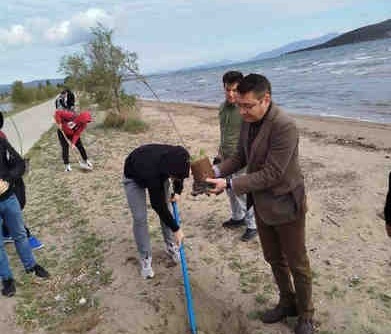
On Thursday, 13 March 2025, and Tuesday, 18 March 2025, 150 tamarisk trees were planted along the beaches of Souvala and Skala Atalanti, of the Lokron Municipality, Greece, with the participation of the local authorities. The tree plantings will be completed with respective actions at the Communities of Malesina and Livanates. In total, 200 tamarisk trees will be planted on the beaches of the Lokron Municipality. These actions are intended to raise awareness among local communities about tree planting and REDD+ activities within the "75UN-75 Trees UNAI SDG7" initiative, launched by the Energy Policy and Development Centre (KEPA) of the National and Kapodistrian University of Athens (NKUA), Greece.
For more information: here
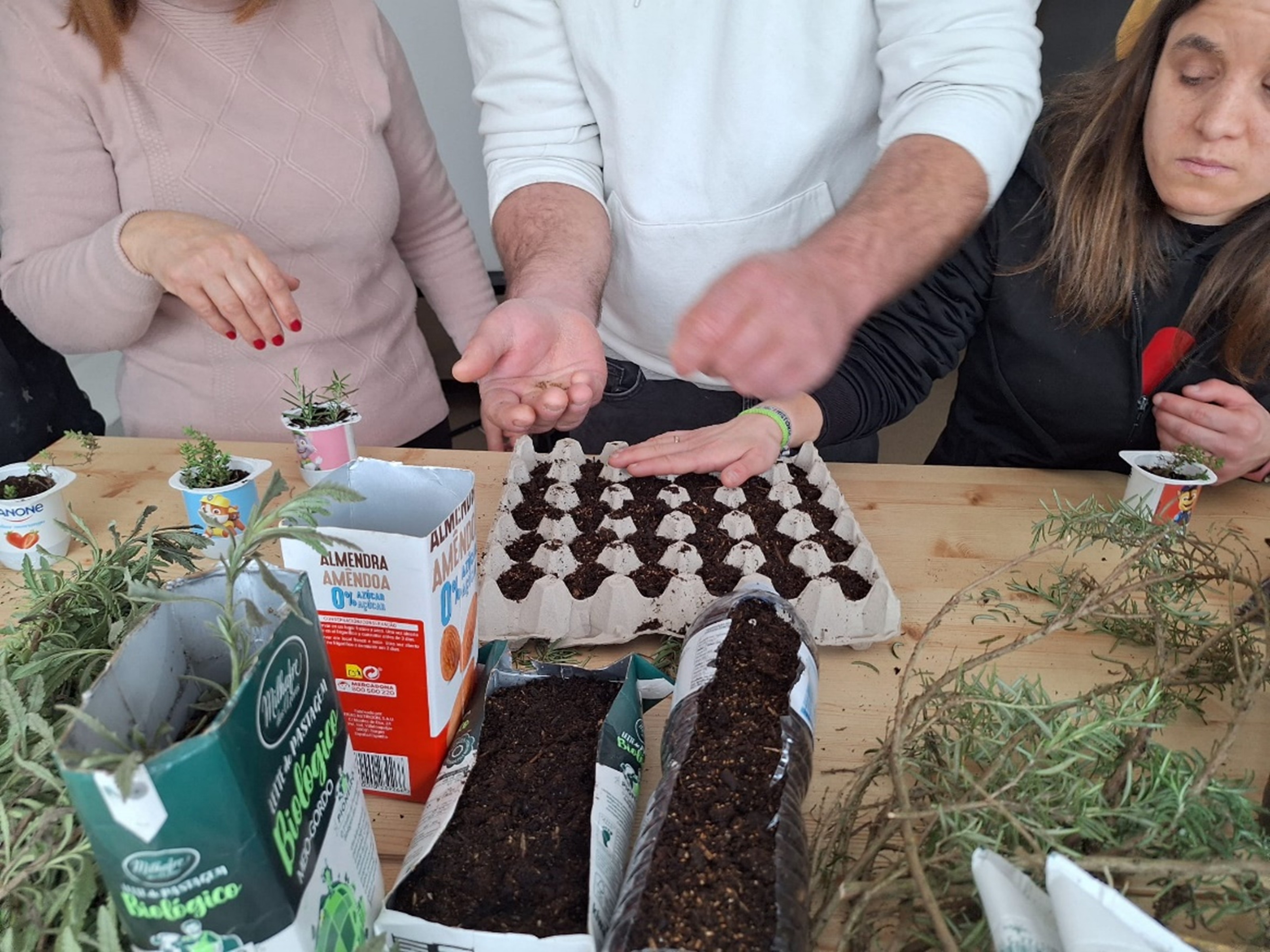
Since March is already too late for planting forest trees due to rising temperatures, the municipality offers fruit and riparian trees instead. This year, around a thousand trees were distributed, and numerous forestry education sessions were held in schools, engaging thousands of students. Additionally, a workshop on cuttings and sowing aromatic and medicinal plants, along with paper recycling, was conducted. The session involved 90 participants, including primary school children and individuals with mental disabilities. Meanwhile, the invasive plant control activity planned for Monte Picoto Park was postponed to the following week due to the weekend storm. Several volunteers have already signed up to participate.
For more information: here
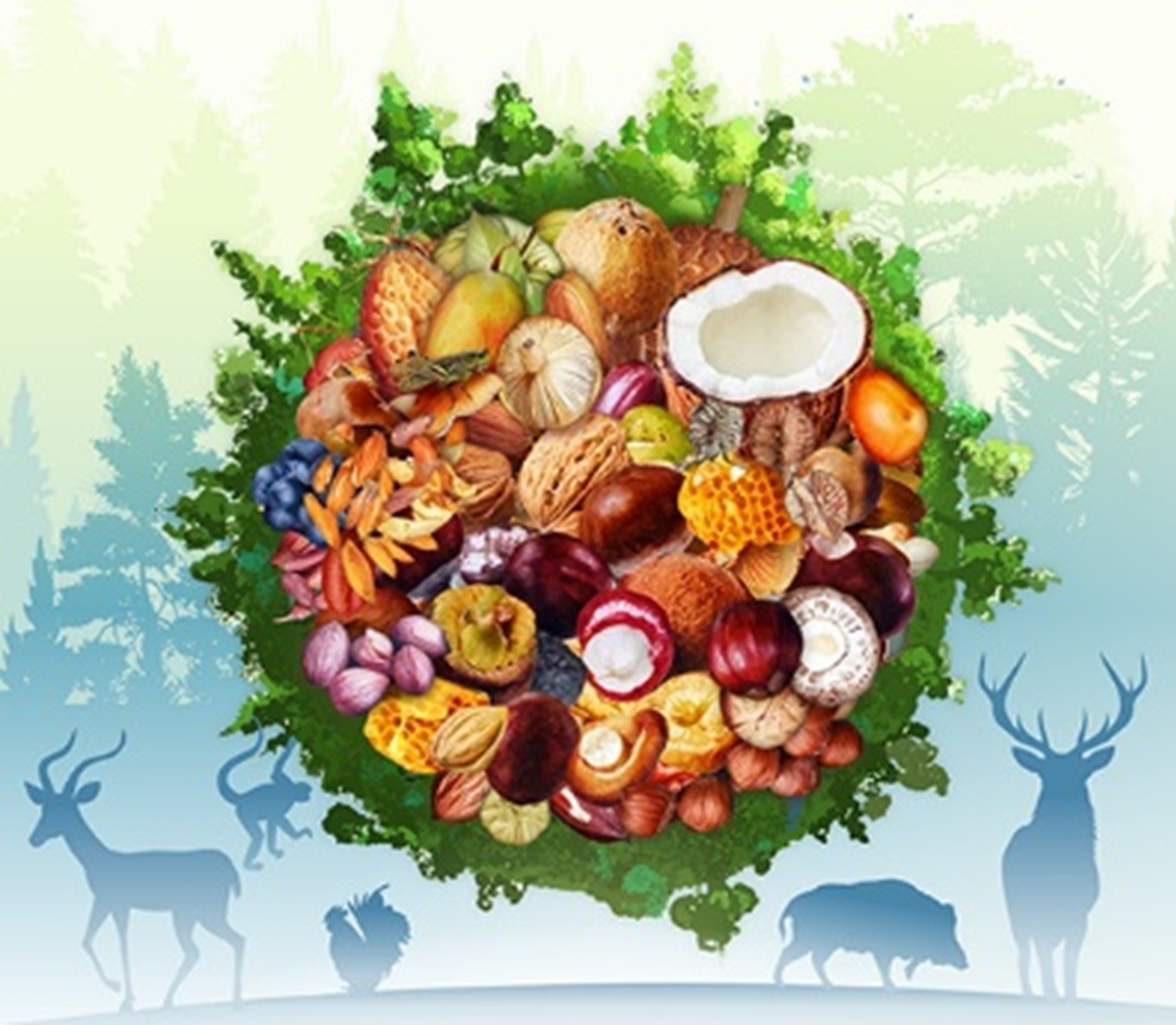
The Food and Agriculture Organization of the United Nations (FAO) held a hybrid global event to explore the connection between forests and food.
Featuring stories from around the world, speakers showcased forest-based wild foods and explored how forests contributed to food security, nutrition, and livelihoods.
The FAO also proudly celebrated its 80th anniversary and marked this occasion by showcasing actions and best practices that promoted a sustainable, inclusive, and resilient food future.
For more information: here

As the EU aims for climate neutrality by 2050, forests play a crucial role in removing CO₂ from the atmosphere and storing it in wood products. Carbon farming in forestry is a promising approach to enhance carbon sequestration while maintaining ecosystem health and biodiversity. Despite the potential benefits, implementing carbon farming faces challenges such as ensuring long-term carbon storage, preventing market leakage, and accurately quantifying sequestration benefits. Policy alignment, robust monitoring systems, and economic incentives are crucial to scaling up these practices effectively. The ThinkForest Ask a Scientist webinar explored these issues, focusing on the findings of the EFI From Science to Policy publication Carbon Farming in the European Forestry Sector. For more information: here